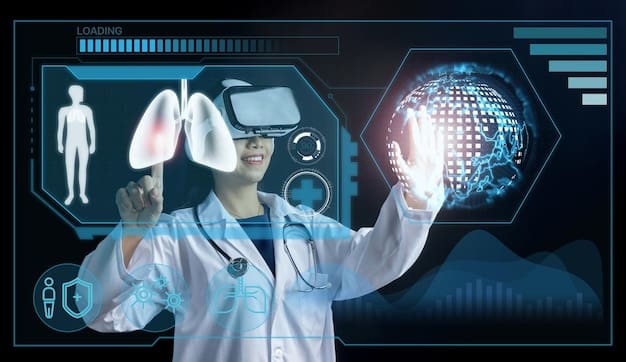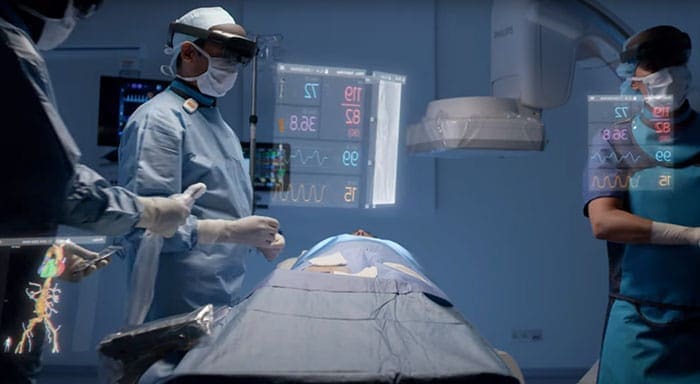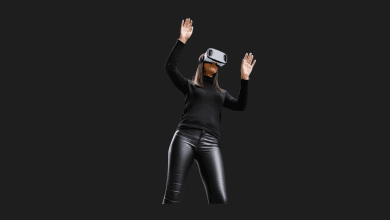Is Metaverse Medical School possible?

In addition to offering endless entertainment and pleasure, the Metaverse is poised to introduce significant innovations in various essential areas, including the healthcare sector.
The Metaverse, a currently popular concept, essentially refers to a virtual reality that exists beyond the confines of reality. Beyond individual pleasures, the Metaverse universe holds considerable potential for real-life conveniences.
Research institutions, such as The Acceleration Studies Foundation (ASF), have been conducting studies on the Metaverse for years, introducing the concept of four types of metadata warehouses: augmented reality, life diary, mirror world, and virtual reality.
Can these metadata warehouses lead to a future where lifestyles, medical practices, and education predominantly shift towards the Metaverse?
The answer is likely yes, but as an enhancement, not a complete replacement. These four concepts directly correspond to transformative applications:
- Augmented Reality (AR) & Mirror World: Already used in medical practices (e.g., surgical planning, visualizing internal anatomy during surgery, and remote assistance) and education (overlaying complex data onto the real world). This blends the physical with the digital to make current practices safer and more precise.
- Virtual Reality (VR): This is the core of the immersive Metaverse used for medical education (simulating high-stress procedures, anatomy lessons), patient rehabilitation (VR-based therapy for stroke, PTSD, and pain management), and remote patient consultations.
- Life Diary (Lifelogging): This refers to the continuous collection of data about a person’s life (via wearables, smart devices, etc.). When integrated into the Metaverse, it enables personalized medicine, creating digital twins to simulate treatment reactions and tailoring lifestyles and preventative health measures.
The synergy of these technologies suggests a strong shift where the Metaverse becomes an omnipresent, interactive layer for training, personalized health, and global accessibility in healthcare and education.

The first concept to explore is “augmented reality” (AR). Here, a virtual environment is created using location-based technologies and networks. For instance, the wearer of a T-shirt called “Cruscope’s Virtuali-Tee” can, through a smartphone, visualize the size and relative positions of organs. In spine surgery centers, algorithms guide surgeons on the direction, depth, and speed of screws used in surgeries.
Another application is in real surgery, where virtual glasses simulate the locations of anatomical structures, aiding in successful operations. The principles are similar in the use of the gamma knife for brain lesions in neurosurgery.
The second metadata warehouse is the “life log” or lifelogging, represented by smartwatches and mobile applications measuring various activities. In the future, personalized medical treatments and recommendations for supplements and drugs based on life logs may become commonplace.
The third component is the “mirror world,” where real-world activities are experienced digitally. Examples include digital labs and virtual training classrooms. An example is Foldit, where participants collaborated online to work on a protein chain, leading to the discovery of a protein potentially useful in AIDS treatment.

Virtual reality (VR), the most popular aspect of the Metaverse, involves advanced 3D graphics, avatars, and real-time communication tools.
Virtual reality applications, such as Zepeto, allow for diverse activities in different environments through avatars.
In the healthcare sector, virtual reality can be used for advanced virtual simulations of surgeries, providing a cost-effective and low-risk way to practice procedures.
Recently, a robot programmed with virtual reality performed the first laparoscopic surgical operation without human intervention, demonstrating its potential in creating standard operating procedures and reducing the variability in surgeon skills.

As for the titular question, a Metaverse Faculty of Medicine theoretically seems possible, considering the potential advancements in both education and practice.
However, graduating without hands-on experience may present challenges, and the importance of personalized patient care should not be overlooked. While standardized surgeries and treatments may become feasible, the saying in medicine holds true: “There is a patient, not just a disease.”











